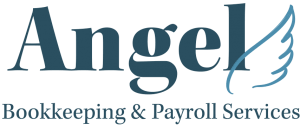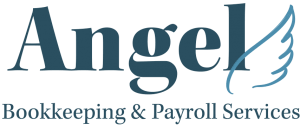This month’s blog, “The Importance of Record Keeping for the Self-Employed” is all about getting organised. And, staying organised.
Knowing that all your financial records are in order is a great feeling. It makes you feel in control. Which, in turn, gives you good, positive energy; something you’ll need lots of if you want to enjoy running your own business. Plus, you can plan ahead, and most essential of all – remain tax compliant.
Getting Everything Right
In our view, ensuring that you keep records for the correct period as set out by HMRC is a must.
Yes, we would say this as bookkeepers, but you know we’re right.
Our role is to support your business, using our accounting software to record your financial records, ensuring accuracy and compliance. Of course, we’ll prepare and submit your accounts, too. Nevertheless, you need to play your part. Here at Angel Bookkeeping, we’re already ultra-efficient, but things go so much smoother – and, to be fair, faster – if you keep your records current.
The Joy of Business
Being self-employed is, in many ways, extraordinarily brilliant.
You’re no longer accountable to a boss and can choose your working hours. You can, once established, to a certain degree, pick and choose your clients. Most likely, you do something you love and excel at.
But.
There can be a downside if you’re a bit nervous about figures and numbers, which many people are. You may not be into details, or just a bit disorganised. Running your own business requires you to get to grips with your “numbers”, whether it’s within your comfort zone – or not.
Obviously, with our skills and expertise we can help you with this, so don’t get overwhelmed. However, HMRC does emphasise the importance of record keeping for the self-employed. They even reference it on their website. Here’s what you need to know, and what you need to keep, when it comes to your financial records:
Bank Statements. We’d advise that you run a separate business bank account. It’s not a legal requirement, but it’s recommended. Why? Because you can separate your personal from your working finances and it saves time when you complete your accounts.
You will need to hang onto your bank statements as these offer an accurate overview of all the transactions relating to your company. Also, credit card statements; even paying in books and cheque stubs if you’re more “old school”.
Business Expenses. Records of the outgoings relating to your work. In other words, goods, stock, stationery, office rent and so on. You will be taxed on your profit, and you can set your expenses against your tax bill and pay less to HMRC. So, don’t lose those receipts.
Business Income. The same applies. How many different sources of income do you have? Bank transfer, online sales, cash sales, income from affiliates? You will need to record all of them. Don’t forget sales invoices, till rolls (if appropriate), and paying in slips – all of them are important financial records.
VAT Records. Do you earn over £85,000? Then you will need to register for VAT. In this case, there are specific details that you must include on your sales invoices. For instance, your VAT registration number, the total gross amount payable (including VAT) and the total amount of VAT chargeable.
Ideally, you would be using accounting software, and it’s easy to send us your transactions via a link.
PAYE Records. If you employ staff, you must keep good records of all the payments you make. Plus, hang on to copies of P60s and any other paperwork relating to your employees.
Time Scales
You must keep ALL your tax records for FIVE YEARS after the tax return deadline for the relevant tax year.
For example, for the 20/21 tax year, your return would have been due on 31st January 2022. So, hang on to your neatly arranged and organised figures until at least the end of January 2027.
Avoid the Wrath of HMRC
You may, repeat may, come under scrutiny from HMRC, who may want to inspect your returns. Whilst this isn’t exactly the most fun you will ever have in your life, if your records are in good order and accurate – possibly thanks to the good work of a bookkeeper – you will be in a better position than otherwise. If your paperwork isn’t adequate, you’ll be given a chance to improve matters. Don’t put this off; when the inspector returns (most likely within three months of the first visit) HMRC could land you with a £500 fine.
(Obviously, you would never destroy your records, but this can and does happen, although it’s rare. Fines of up to £3,000 would seriously ruin your day.)
In Conclusion
We can’t over-emphasise the importance of record keeping for the self-employed. If you’ve set a goal to grow your business, then you will need well-maintained records to monitor your progress. You’ll know whether your income and profits are moving in the right direction. Equally, what changes you may need to make.
Accurate record keeping could boost the likelihood of your success. It’s as simple as that. Get in touch with the team at Angel Bookkeeping if you’d like some advice and guidance.

